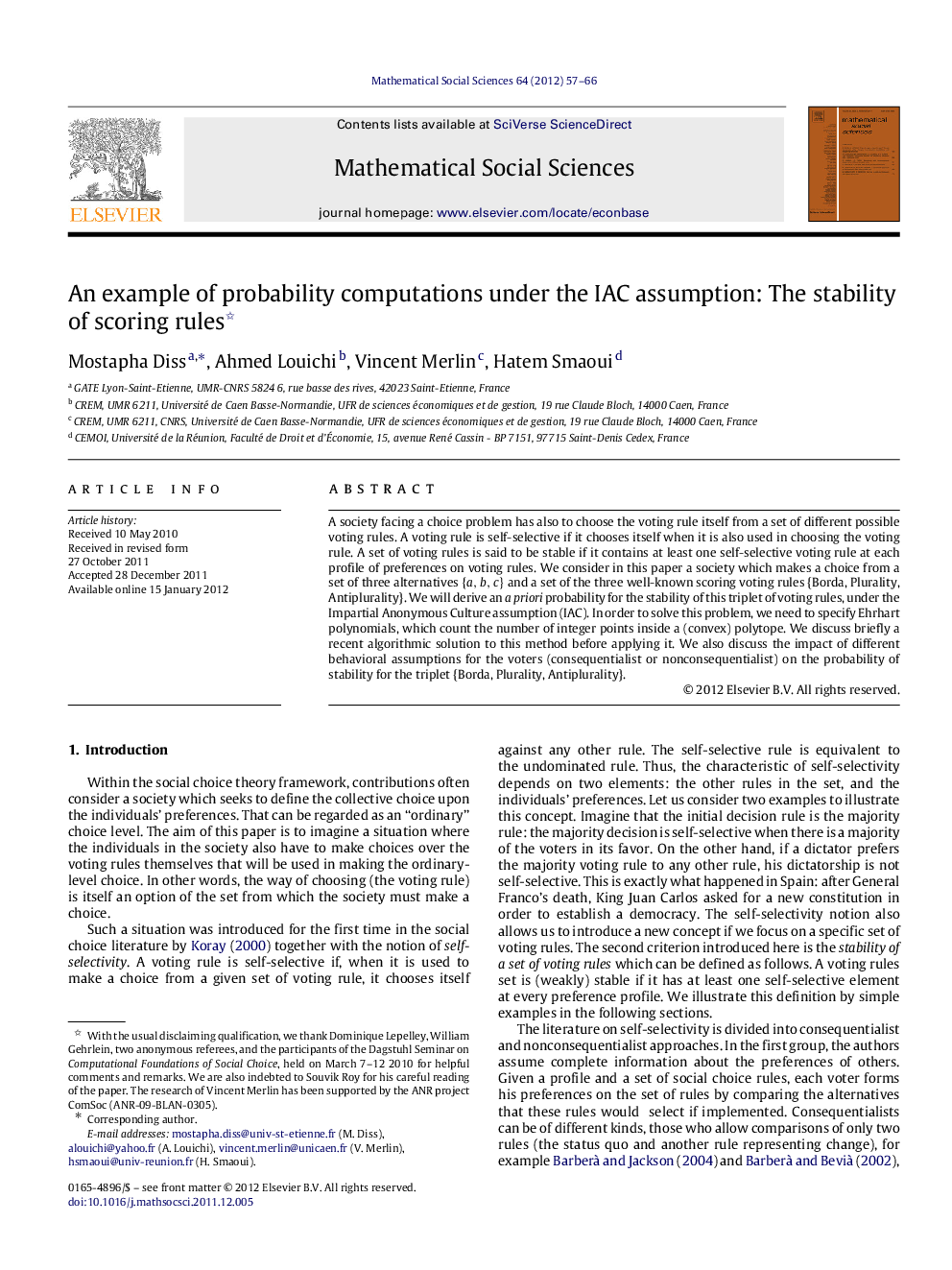| Article ID | Journal | Published Year | Pages | File Type |
|---|---|---|---|---|
| 972901 | Mathematical Social Sciences | 2012 | 10 Pages |
A society facing a choice problem has also to choose the voting rule itself from a set of different possible voting rules. A voting rule is self-selective if it chooses itself when it is also used in choosing the voting rule. A set of voting rules is said to be stable if it contains at least one self-selective voting rule at each profile of preferences on voting rules. We consider in this paper a society which makes a choice from a set of three alternatives {a,b,c}{a,b,c} and a set of the three well-known scoring voting rules {Borda, Plurality, Antiplurality}. We will derive an a priori probability for the stability of this triplet of voting rules, under the Impartial Anonymous Culture assumption (IAC). In order to solve this problem, we need to specify Ehrhart polynomials, which count the number of integer points inside a (convex) polytope. We discuss briefly a recent algorithmic solution to this method before applying it. We also discuss the impact of different behavioral assumptions for the voters (consequentialist or nonconsequentialist) on the probability of stability for the triplet {Borda, Plurality, Antiplurality}.
► We study the stability of the voting rules set {Borda, Plurality, Antiplurality}. ► We use the Impartial Anonymous Culture (IAC) assumption. ► This model does not increase the probability of the stability of the considered set. ► Then, we use the consequentialist assumption for three candidates {a,b,c}{a,b,c}. ► This assumption leads to a dramatic increase of the stability of the considered set.
